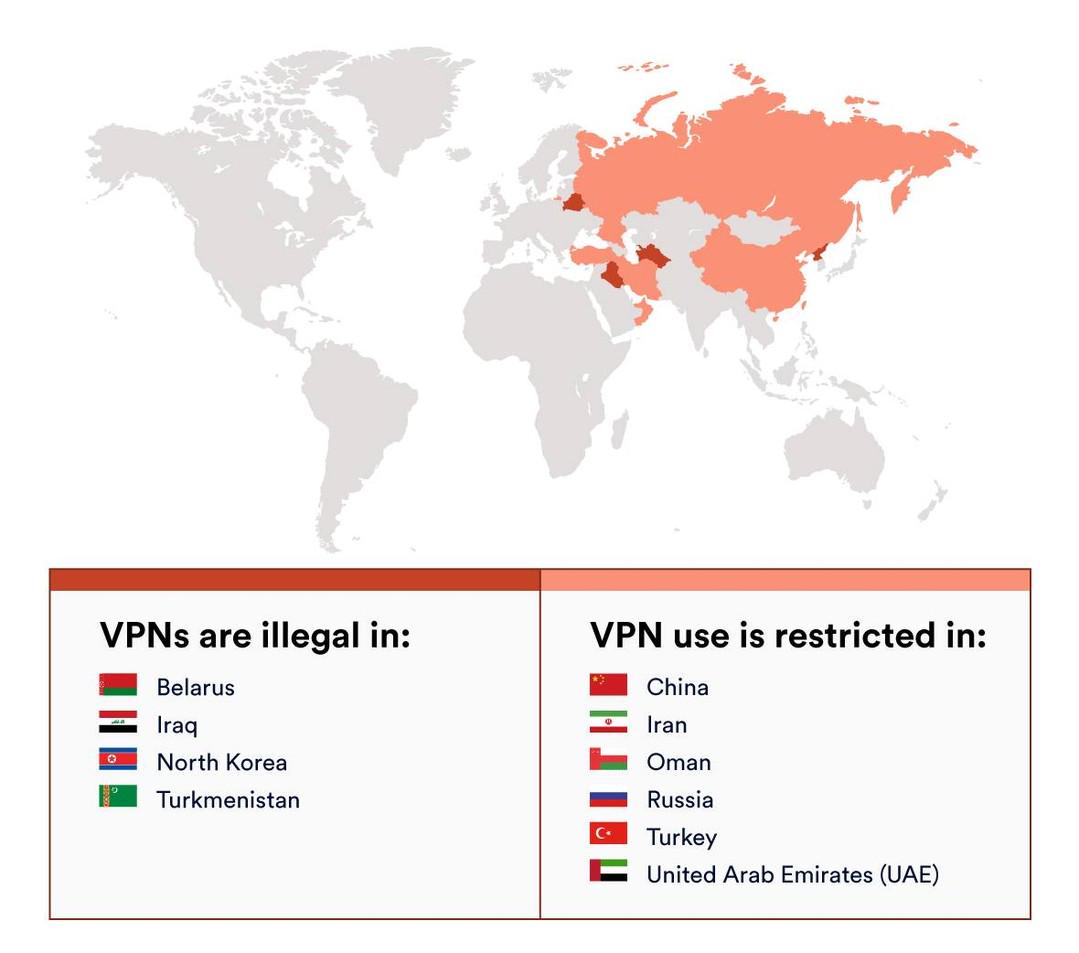VPN Legality by Country Map


Marcus Rodriguez
Historical Geography Expert
Marcus Rodriguez specializes in historical cartography and geographic data analysis. With a background in both history and geography, he brings unique...
Geographic Analysis
What This Map Shows
This visualization illustrates the global landscape of VPN legality, highlighting countries where Virtual Private Networks (VPNs) are either illegal or restricted. As internet privacy and freedom of expression become increasingly pertinent in today’s digital age, understanding the legal status of VPNs across different regions is critical. VPNs serve a vital role in safeguarding personal data, accessing blocked content, and maintaining anonymity online. However, in some nations, the use of these tools is met with strict regulations or outright bans, often reflecting broader issues concerning internet freedom and government control.
Deep Dive into VPN Legality
VPNs, or Virtual Private Networks, allow users to create a secure connection over the Internet, primarily to protect their privacy. However, the legal landscape surrounding their use varies significantly from country to country. In some nations, VPNs are celebrated as tools for enhancing personal freedoms, while in others, they are viewed as threats to national security or social order.
Countries like China, Russia, and Iran have imposed severe restrictions on VPN use. In China, for instance, the government has implemented a rigorous system of internet censorship known as the Great Firewall, which not only blocks foreign VPN services but actively monitors and penalizes users who attempt to bypass these restrictions. Similarly, Russia has enacted laws requiring VPN providers to register with the government and comply with local censorship laws, effectively limiting their effectiveness.
Interestingly, the motivations behind these restrictions often vary. In authoritarian regimes, the control over internet access is a means to suppress dissent and control the flow of information. For example, Iran's strict regulations on VPNs are part of broader efforts to maintain state control over communications and limit the spread of opposition viewpoints.
On the other hand, in countries like the United Arab Emirates (UAE), while VPNs are legal, their use for accessing blocked content is illegal. The UAE government has strict laws against using VPNs to circumvent their censorship, particularly around content related to gambling and adult material. Violators can face hefty fines or even imprisonment.
In contrast, many Western nations, such as the United States and most European countries, generally support the use of VPNs, viewing them as essential tools for privacy protection. However, even in these regions, the conversation around VPNs is evolving, especially with the rise of data privacy concerns and the potential for regulation in the future.
Regional Analysis
Examining the various regions presented in the map reveals striking differences in how VPNs are treated. In Europe, most countries allow VPN usage without significant restrictions. However, the European Union is increasingly pushing for stronger data protection regulations, which could influence how VPN services operate in the future.
In contrast, the Middle East is a mixed bag. Nations like Saudi Arabia have strict regulations against VPNs, while countries like Turkey have fluctuated in their stance, at times allowing VPNs but later imposing restrictions during periods of political unrest. Similarly, in Asia, while countries like Japan and South Korea embrace VPNs for privacy, China’s stringent regulations create a stark divide in the region.
Africa presents its unique challenges, with some nations like Ethiopia and Uganda controlling internet access tightly and seeing VPNs as a threat to government authority. However, countries like South Africa promote internet freedom and allow VPN use, indicating a growing recognition of the importance of digital privacy.
Significance and Impact
The legality of VPNs is not merely a technical issue; it intertwines with broader themes of human rights, privacy, and freedom of expression. As more people turn to the internet for information and communication, the ability to access unrestricted content becomes a crucial aspect of personal freedom. The growing trend of VPN restrictions raises important questions about digital sovereignty and the extent to which governments can control online behavior.
Looking ahead, trends indicate that the conversation around VPNs will continue to evolve. With increasing awareness of data privacy and protection, more individuals might seek out VPNs regardless of legal restrictions, potentially leading to a rise in underground VPN services. Moreover, as international discourse around digital rights progresses, there may be pressure on governments to reconsider their positions on VPN legality, potentially leading to changes in legislation in restrictive countries.
Understanding the map of VPN legality is essential for individuals navigating the complex terrain of internet privacy in an age where digital freedoms are constantly being challenged. It's a reminder of the ongoing struggle for internet freedom and the importance of advocating for personal rights in the digital space.
Visualization Details
- Published
- August 13, 2025
- Views
- 200
Comments
Loading comments...